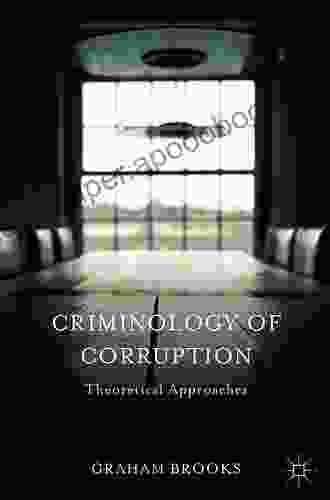Criminology of Corruption: Unraveling the Complexities Through Theoretical Lenses

4.1 out of 5
| Language | : | English |
| File size | : | 749 KB |
| Text-to-Speech | : | Enabled |
| Screen Reader | : | Supported |
| Enhanced typesetting | : | Enabled |
| Word Wise | : | Enabled |
| Print length | : | 320 pages |
Corruption, a persistent threat that plagues societies worldwide, manifests in various forms, undermining trust in institutions, eroding ethical values, and hindering economic progress. To combat this societal scourge, it is imperative to delve into the depths of criminology, a field that unravels the intricacies of crime and deviance. This article embarks on a journey to explore the diverse theoretical approaches within criminology that seek to shed light on the causes, manifestations, and consequences of corruption.
Theoretical Approaches in the Criminology of Corruption
Criminologists have developed a myriad of theoretical frameworks to understand the complexities of corruption. These approaches provide distinct lenses through which researchers examine the motivations, patterns, and impacts of corrupt behaviors.
Social Control Theory
Social control theory posits that individuals are less likely to engage in corrupt activities when they are strongly integrated into society and subject to effective social controls. These controls, such as family ties, religious beliefs, and community norms, reinforce ethical behavior and deter individuals from deviating from societal expectations.
Strain Theory
Strain theory suggests that corruption may arise when individuals experience significant stress, frustration, or inequality. This strain, caused by factors such as poverty, discrimination, or unemployment, can lead individuals to perceive corruption as a legitimate means of achieving their goals or alleviating their distress.
Rational Choice Theory
Rational choice theory views corruption as a calculated decision made by individuals who weigh the potential benefits and risks involved. According to this perspective, corruption occurs when individuals perceive the potential gains from engaging in corrupt activities to outweigh the potential penalties or social disapproval.
Institutional Anomie Theory
Institutional anomie theory focuses on the role of institutional structures and norms in fostering or inhibiting corruption. This theory argues that corruption thrives in environments where institutions lack clear rules, are poorly enforced, or are perceived as illegitimate by society.
Social Learning Theory
Social learning theory emphasizes the role of social interactions and observation in shaping individuals' attitudes and behaviors. This theory suggests that individuals may learn to engage in corrupt activities by observing others engaging in similar behaviors or by being exposed to cultural norms that condone or encourage corruption.
Anomie Theory
Anomie theory, closely related to strain theory, suggests that corruption arises when individuals experience a breakdown in societal norms and values. This breakdown can lead to a state of normlessness, where individuals feel disconnected from society and engage in deviant behaviors such as corruption.
Deviance Theory
Deviance theory views corruption as a form of deviant behavior that violates societal norms and expectations. This theory examines the social processes that define certain behaviors as deviant and the consequences that individuals face for engaging in such behaviors.
Labeling Theory
Labeling theory posits that individuals may adopt deviant behaviors when they are labeled or stigmatized as deviant by society. This labeling process can create a self-fulfilling prophecy, leading individuals to internalize the negative labels and engage in behaviors that conform to those labels.
Conflict Theory
Conflict theory views corruption as a product of social inequality and class conflict. This theory argues that those in positions of power and privilege are more likely to engage in corruption to maintain their status and advantage, while those in marginalized and disadvantaged positions may resort to corruption as a means of resistance or survival.
Symbolic Interactionism
Symbolic interactionism emphasizes the importance of social interactions and symbols in shaping human behavior. This theory suggests that individuals' perceptions of corruption and their decisions to engage in it are influenced by the meanings and interpretations they derive from their social interactions and the symbols associated with corruption.
The diverse theoretical approaches within criminology provide a comprehensive framework for understanding the complex phenomenon of corruption. Each approach offers distinct insights into the motivations, patterns, and consequences of corrupt behaviors. By integrating these perspectives, criminologists can develop a more nuanced understanding of corruption and its impact on societies.
Tackling corruption requires a multifaceted approach that addresses both its systemic and individual causes. Policymakers, law enforcement agencies, and civil society organizations must work together to strengthen social controls, reduce inequality, promote transparency and accountability, and foster an ethical culture that discourages
4.1 out of 5
| Language | : | English |
| File size | : | 749 KB |
| Text-to-Speech | : | Enabled |
| Screen Reader | : | Supported |
| Enhanced typesetting | : | Enabled |
| Word Wise | : | Enabled |
| Print length | : | 320 pages |
Do you want to contribute by writing guest posts on this blog?
Please contact us and send us a resume of previous articles that you have written.
 Book
Book Novel
Novel Page
Page Chapter
Chapter Text
Text Story
Story Genre
Genre Reader
Reader Library
Library Paperback
Paperback E-book
E-book Magazine
Magazine Newspaper
Newspaper Paragraph
Paragraph Sentence
Sentence Bookmark
Bookmark Shelf
Shelf Glossary
Glossary Bibliography
Bibliography Foreword
Foreword Preface
Preface Synopsis
Synopsis Annotation
Annotation Footnote
Footnote Manuscript
Manuscript Scroll
Scroll Codex
Codex Tome
Tome Bestseller
Bestseller Classics
Classics Library card
Library card Narrative
Narrative Biography
Biography Autobiography
Autobiography Memoir
Memoir Reference
Reference Encyclopedia
Encyclopedia Lisette Balabarca
Lisette Balabarca George Sourrys
George Sourrys Richard D Urman
Richard D Urman Grace Ji Sun Kim
Grace Ji Sun Kim Geoffrey Hughes
Geoffrey Hughes Jason Anspach
Jason Anspach Richard Georgiou
Richard Georgiou Robert K Schaeffer
Robert K Schaeffer Gerard O Neill
Gerard O Neill Gonzalo Sanabria
Gonzalo Sanabria R B Hilliard
R B Hilliard Graham Brooks
Graham Brooks Grantlee Kieza
Grantlee Kieza Joseph Delaney
Joseph Delaney Georg Fischer
Georg Fischer Gerald Naekel
Gerald Naekel Jeremy Scahill
Jeremy Scahill Gilbert G Gonzalez
Gilbert G Gonzalez Robert H Anderson
Robert H Anderson Lynne Burke
Lynne Burke
Light bulbAdvertise smarter! Our strategic ad space ensures maximum exposure. Reserve your spot today!
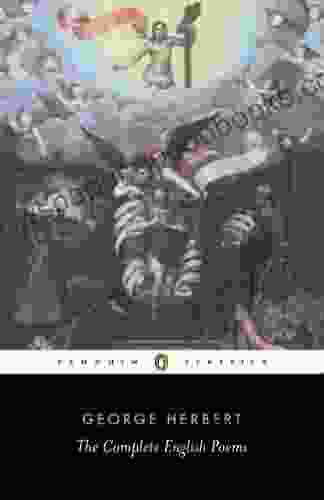
 Dwayne MitchellThe Complete English Poems Penguin Classics: A Journey Through the History of...
Dwayne MitchellThe Complete English Poems Penguin Classics: A Journey Through the History of...
 Dwayne MitchellBreak the Chains of Loneliness: How to Connect With Others, Make Friends, and...
Dwayne MitchellBreak the Chains of Loneliness: How to Connect With Others, Make Friends, and... Braeden HayesFollow ·3.3k
Braeden HayesFollow ·3.3k Andy ColeFollow ·8.9k
Andy ColeFollow ·8.9k Brayden ReedFollow ·19.1k
Brayden ReedFollow ·19.1k Glen PowellFollow ·8.3k
Glen PowellFollow ·8.3k Rubén DaríoFollow ·17.4k
Rubén DaríoFollow ·17.4k Ted SimmonsFollow ·19.9k
Ted SimmonsFollow ·19.9k Adam HayesFollow ·4.4k
Adam HayesFollow ·4.4k Roger TurnerFollow ·10.1k
Roger TurnerFollow ·10.1k

 Ken Follett
Ken FollettDiscover the Enchanting World of Classical Piano with "10...
A Symphony of Timeless...
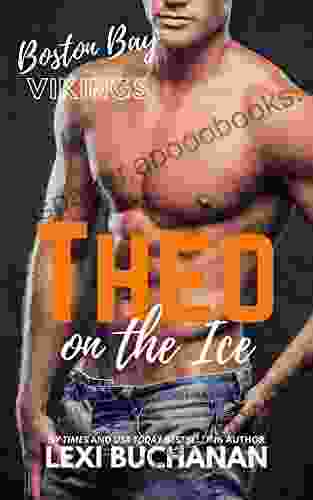
 Cody Russell
Cody RussellTheo On The Ice Boston Bay Vikings: A Hockey Adventure...
Theo On The Ice...

 Nathaniel Hawthorne
Nathaniel HawthorneBach for Easy Guitar: Unleash the Genius of the Baroque...
Johann Sebastian Bach, the undisputed...
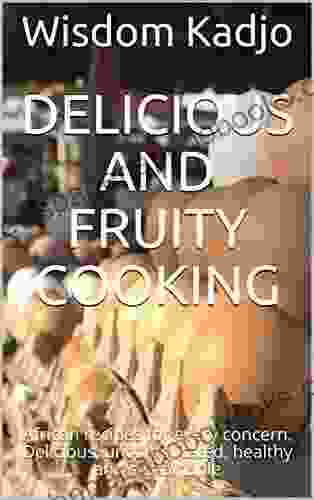
 Brenton Cox
Brenton CoxAfrican Recipes For Every Concern: Delicious,...
Embark on a Culinary Journey to the Heart of...
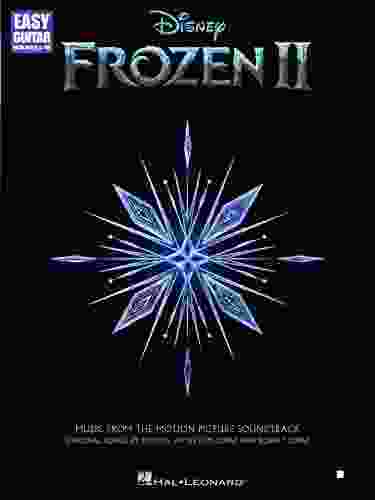
 Lawrence Bell
Lawrence BellEasy Guitar With Notes Tab: Your Ultimate Guide to...
Unlock the World...
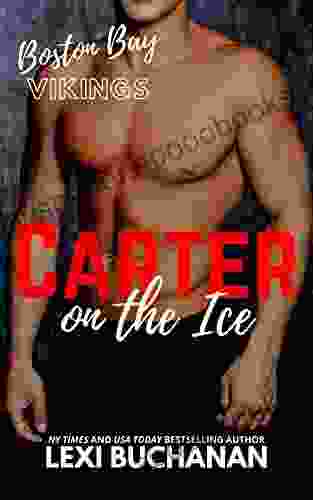
 Brenton Cox
Brenton CoxCarter On The Ice: A Thrilling Sports Novel
Synopsis ...
4.1 out of 5
| Language | : | English |
| File size | : | 749 KB |
| Text-to-Speech | : | Enabled |
| Screen Reader | : | Supported |
| Enhanced typesetting | : | Enabled |
| Word Wise | : | Enabled |
| Print length | : | 320 pages |


